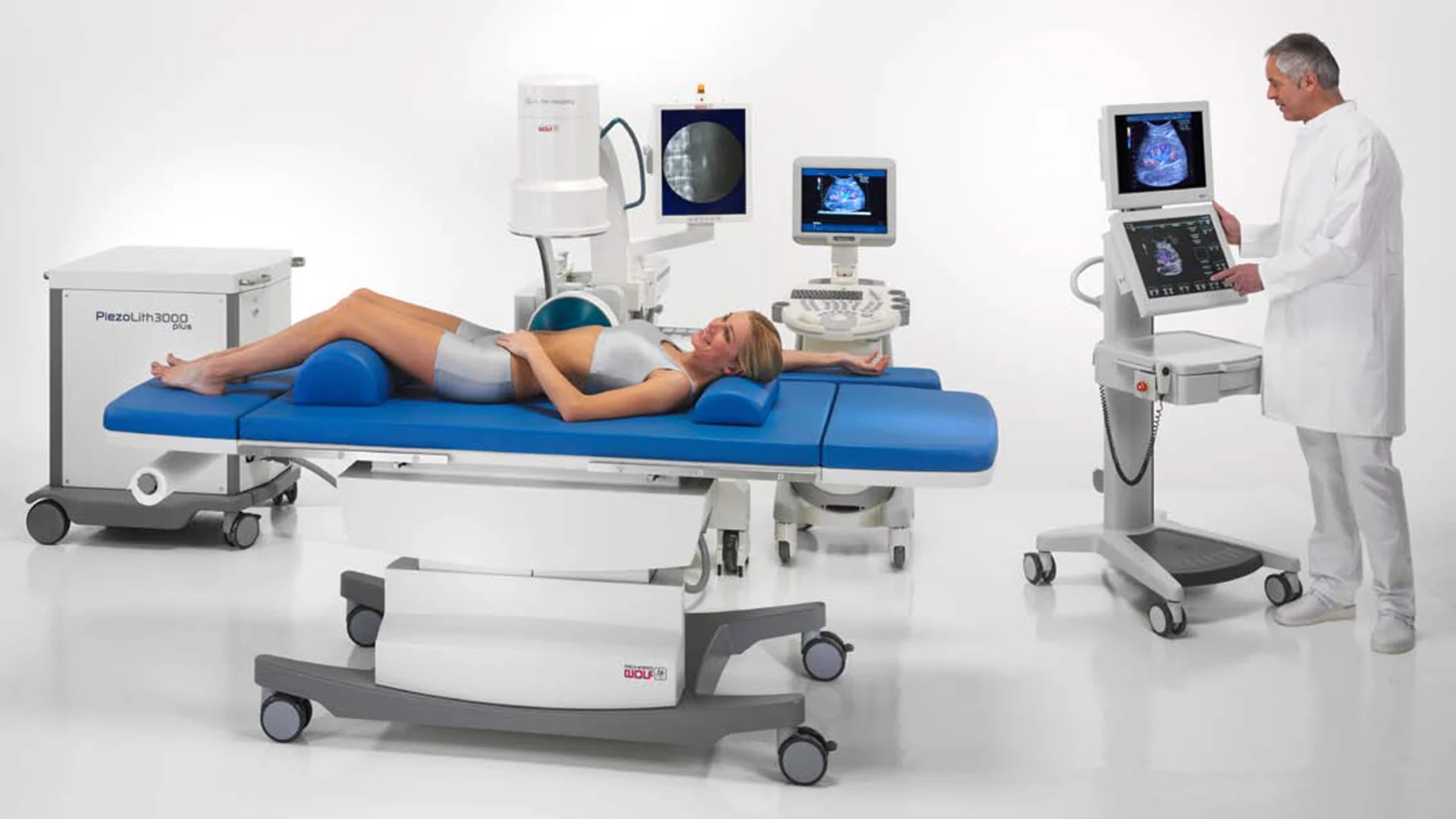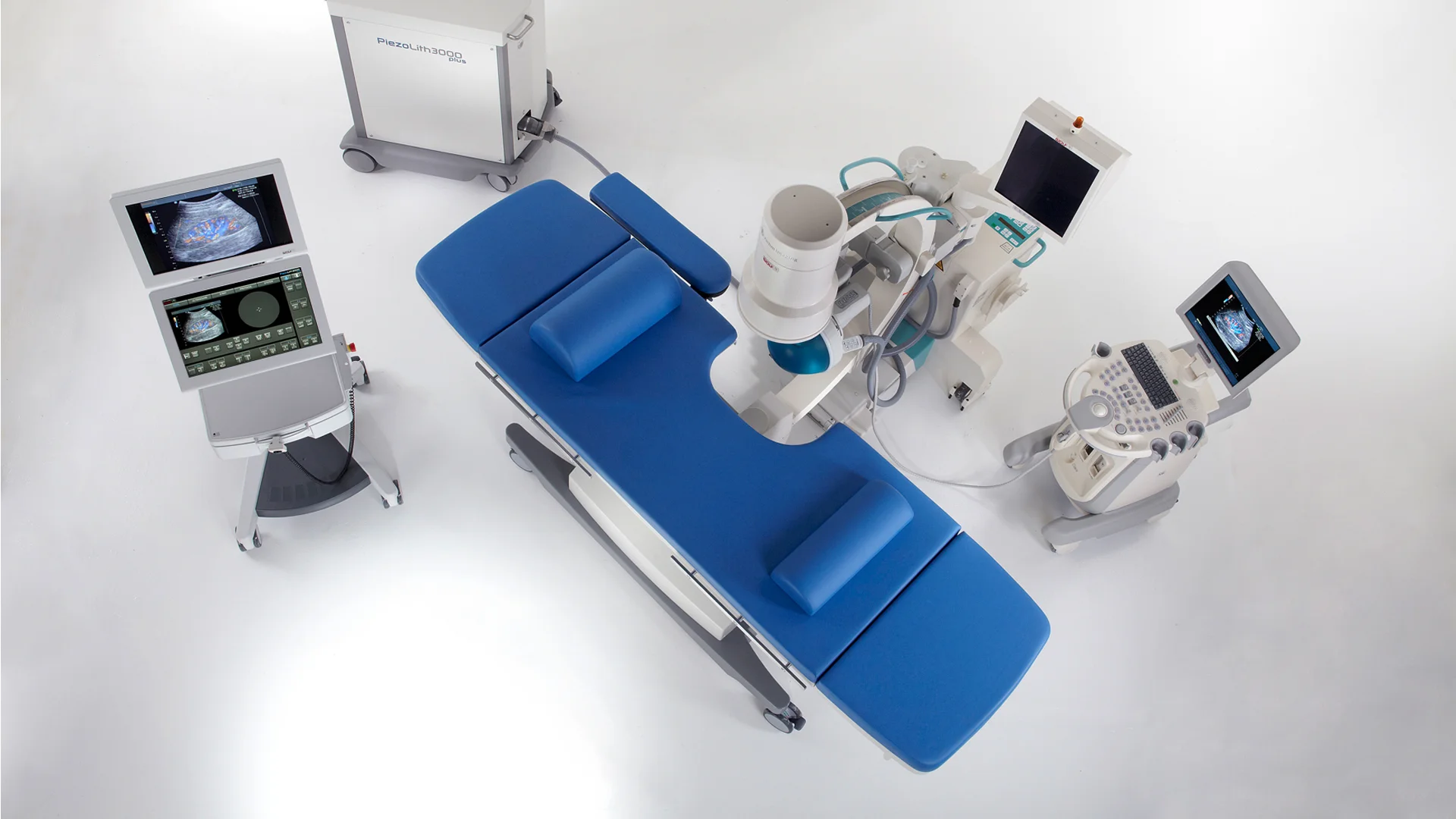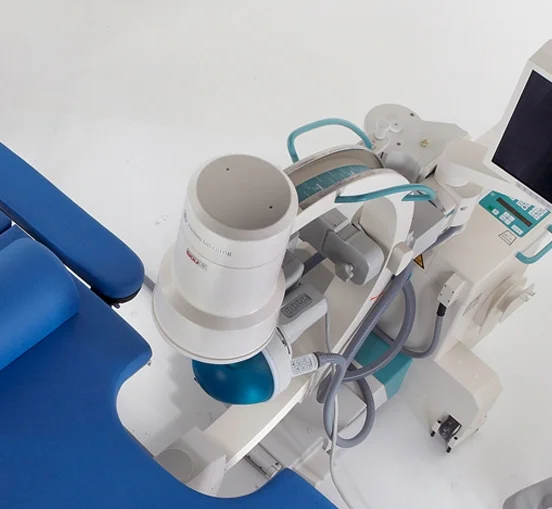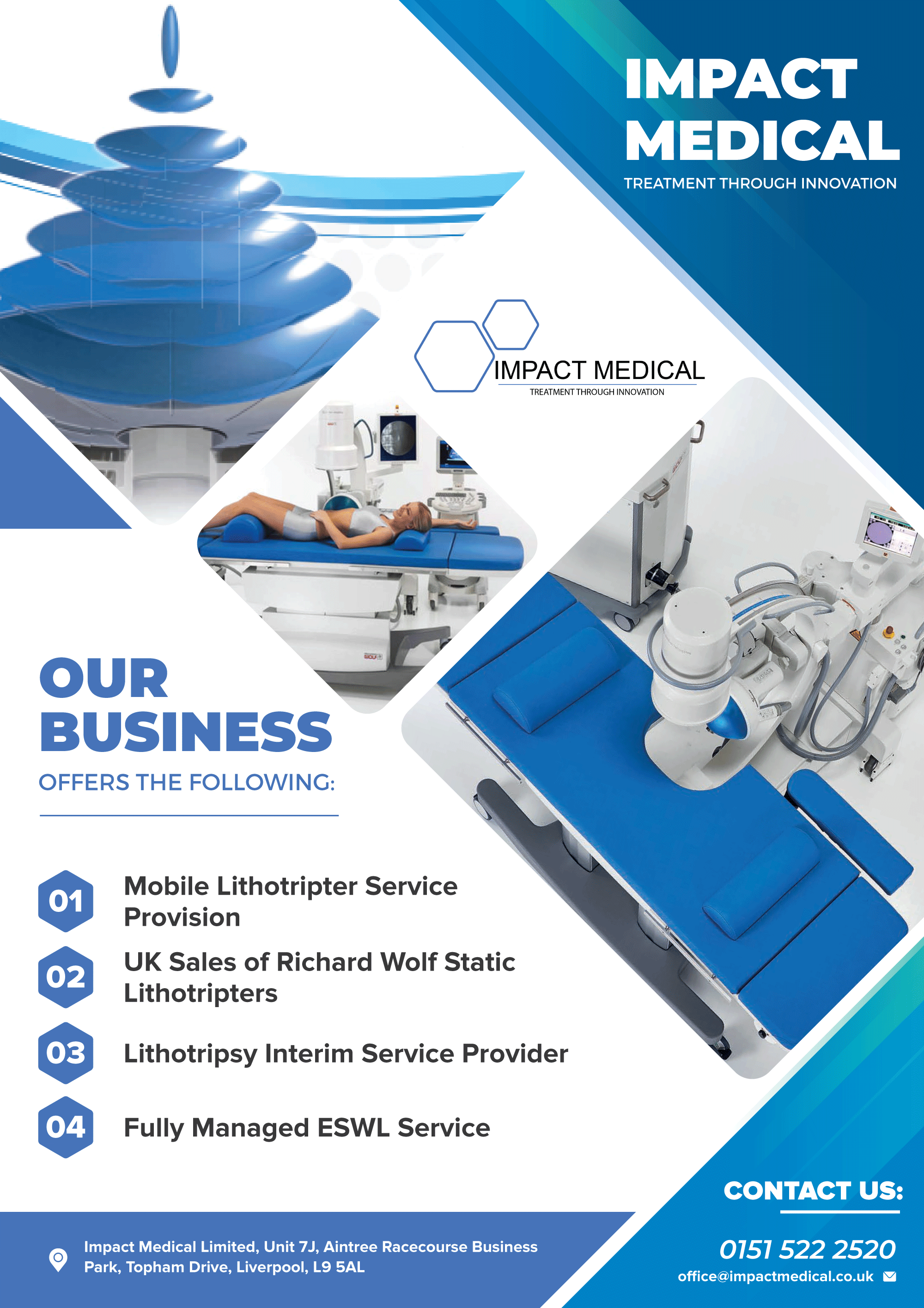ESWL - Extracorporeal Shock Wave Lithotripsy
Kidney Stones
Kidney stones can develop in one or both kidneys and most often affect people aged 30 to 60 years of age. They are quite common, with around 3 in 20 men and up to 2 in 20 women developing them at some stage of their lives. The medical term for Kidney stones is Nephrolithiasis and if they cause severe pain this is known as Renal Colic.
Symptoms of Kidney Stones
Small kidney stones may go undetected and be passed painlessly in the urine but is is fairly common for a stone to block part of the urinary system, such as;
Ureter - the tube connecting the kidney to the bladder
Urethra - the tube urine passes through on its way out of the body
A blockage can cause sever pain in the abdomen or groin and sometimes causes a Urinary Tract Infection (UTI).
Treatment
Lithotripsy is the breaking of kidney stones by pressure waves, these waves are focused onto the kidney stone with the use of ultrasound and X-ray. The pressure waves travel through the body tissues without damaging them and reduce the kidney stone to a fine gravel which may be passed naturally in urine over a period of time, usually with no pain.
Lithotripsy is usually delivered with up to 3 treatments dependent on the size and density of the stone, each lasting approximately 45 mins over a period of weeks or until the kidney stone is broken down so it can be passed naturally. You may experience some discomfort during treatment, similar to an elastic band being flicked against the skin but pain relief will be available in consultation with the nursing staff and your consultant.






